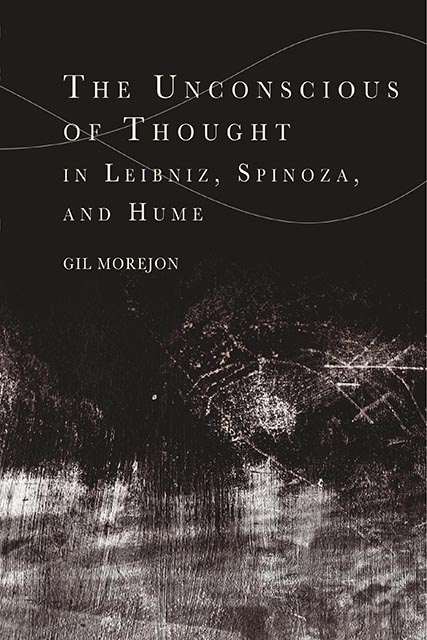
- Publisher:
- Edinburgh University Press
- Online publication date:
- July 2023
- Print publication year:
- 2022
- Online ISBN:
- 9781399504829
- Subjects:
- Epistemology and Metaphysics, Philosophy
Our systems are now restored following recent technical disruption, and we’re working hard to catch up on publishing. We apologise for the inconvenience caused. Find out more: https://www.cambridge.org/universitypress/about-us/news-and-blogs/cambridge-university-press-publishing-update-following-technical-disruption

These three early modern philosophers understood that minds necessarily involve ideas and patterns of thinking that are not conscious. Morejón shows that in this way they sharply distinguish themselves from other major early modern thinkers whose conceptions of the mind tended to identify thinking with consciousness, such as Descartes, Malebranche and Locke. This conception of the thinking mind as conscious remains popular even today. By contrast, Leibniz, Spinoza and Hume argue instead that thought is not, as such, a matter of consciousness.
Morejón explores the significance of this insight for their conceptions of freedom and ethics. By systematically analyzing the major writings of these three thinkers and placing them in the context of the history of Western philosophy, he shows that together they provide us with a metaphysics of ideas that is uniquely helpful for thinking through important problems in contemporary political theory. In particular, it allows us to understand how it is possible for people to act against their own interests and in spite of their consciously knowing better.
Readers will gain a sophisticated understanding of what Leibniz, Spinoza and Hume thought about the metaphysics of ideas, the nature of the human mind and the limits of individual freedom.
 Loading metrics...
Loading metrics...
* Views captured on Cambridge Core between #date#. This data will be updated every 24 hours.
Usage data cannot currently be displayed.